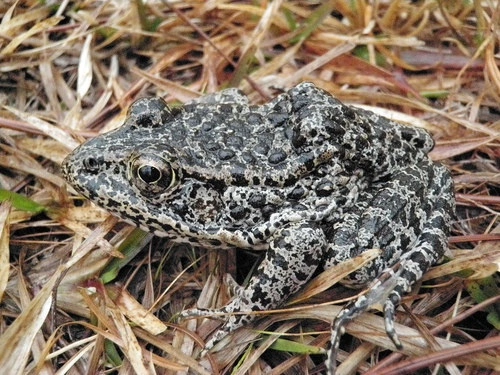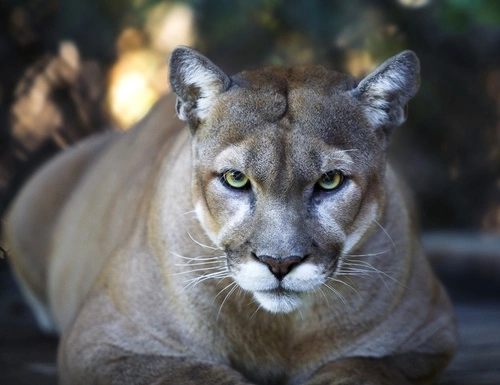On August 15, 2019, the U.S. Fish and Wildlife Service (FWS) published a series of notices in the Federal Register announcing the agency’s 12-month and 90-day findings on petitions to list a number of species under the Endangered Species Act (ESA). Most prominently, the FWS declined to list two species commonly known as the Joshua tree (Yucca brevifolia and Yucca jaegeriana) ...
More than a year after the U.S. Fish and Wildlife Service (USFWS) and National Marine Fisheries Service (NMFS) (collectively, Services) published proposals to revise several Endangered Species Act (ESA) implementing regulations, the agencies have announced that the final versions of the rules are ready for publication in the Federal Register ...
The U.S. Fish and Wildlife Service (USFWS) is systematically revising species recovery plans issued under the Endangered Species Act (ESA). On August 6, 2019, USFWS published three notices of availability announcing public comment periods on its draft revisions to 70 recovery plans covering 121 species across the United States ...
The U.S. Fish & Wildlife Service (Service) and a group of landowners recently settled long-running litigation regarding the Service’s designation of approximately 1,500 acres of private land as critical habitat for the dusky gopher frog (Rana sevosa). The Service designated the private land in Louisiana as critical habitat in 2012. Weyerhaeuser Co. and local landowners sued the Service, arguing that designation of the private land where the frog could not currently survive was overreach ...
In its newly-released proposed recovery plan for the Desert pupfish (Cyprinodon macularius), the U.S. Fish and Wildlife Service (Service) has put into action its internal plan to add quantitative criteria to recovery plans. The pupfish recovery plan, originally adopted in 1993, contained only qualitative criteria when adopted. In its proposed revisions to the pupfish’s recovery plan, the Service adds quantitative criteria for whether the pupfish should be considered for delisting or when it has recovered, including the number of established populations that would make the ...
The Center for Biological Diversity and Mountain Lion Foundation submitted a petition to the California Fish and Game Commission (the Commission) to list mountain lions (Puma concolor) in southern and central California as threatened or endangered pursuant to the California Endangered Species Act. The petition identifies habitat loss and fragmentation, due to roads and development, as significant threats to the survival of the local populations.
The petition acknowledges that there is no reliable estimate of mountain lion abundance in California, but includes estimates for ...
On June 12, 2019, the California Fish and Game Commission (Commission) voted 3-1 that listing four subspecies of bumble bee may be warranted under the California Endangered Species Act (CESA). The decision was made after the Xerces Society, Center for Food Safety, and Defenders of Wildlife filed a petition to list the Crotch bumble bee (Bombus crotchii), Franklin’s bumble bee (Bombus franklini), Suckley cuckoo bumble bee (Bombus suckleyi), and western bumble bee (Bombus occidentalis occidentalis) as endangered species under CESA.
Presently, no insects are ...
On May 22, 2019, the U.S. Fish and Wildlife Service (FWS) announced a proposal to list two intriguing North Carolina aquatic species under the Endangered Species Act (ESA). The FWS was spurred to act in part by a 2010 petition and subsequent litigation from environmental organizations to list over 400 aquatic species found in the southeastern United States. The two species the agency deems as needing protection in this proposed rule are the Carolina madtom (Noturus furiosus), a poisonous catfish, and the Neuse River waterdog (Necturus lewisi), a freshwater salamander.
The Carolina ...
On April 29, 2019, Governor Newsom issued Executive Order N-10-19 (EO) directing the California Natural Resources Agency, the California Environmental Protection Agency, the California Department of Food and Agriculture, in consultation with the Department of Finance (collectively, the agencies), to prepare a 21st century water resilience portfolio to meet the needs of California’s communities, economy and environment in the face of water supply uncertainty, climate change and the state’s growing population. The EO’s sweeping directive requires the agencies ...
On May 3, 2019, the U.S. Fish and Wildlife Service (Service) published a proposed rule to downlist the American burying beetle (Nicrophorus americanus) from endangered to threatened. The Service also proposed a rule under section 4(d) of the Endangered Species Act (ESA) to allow many routine activities to occur within the range of the species, even if they result in incidental take of the species, in light of the fact that such activities do not affect the overall viability of the American burying beetle.
The American burying beetle is a nocturnal species that has a one year ...
Nossaman’s Endangered Species Law & Policy blog focuses on news, events, and policies affecting endangered species issues in California and throughout the United States. Topics include listing and critical habitat decisions, conservation and recovery planning, inter-agency consultation, and related developments in law, policy, and science. We also inform readers about regulatory and legislative developments, as well as key court decisions.
Stay Connected
 RSS Feed
RSS Feed
Categories
- Alternative Energy
- Bald and Golden Eagle Protection Act
- Budget
- CEQA
- CESA
- Climate Change
- Congress
- Conservation
- Construction Projects
- Consultation
- Continuing Education
- Court Decisions
- Critical Habitat
- Delisting
- Endangered Species Act
- Event
- Fish & Wildlife Service
- Freedom of Information Act
- Government Administration
- Legal
- Legislation
- Listing
- Litigation
- Migratory Bird
- National Marine Fisheries Service
- NEPA
- Off Shore Wind
- Pacific Northwest
- project
- Publications
- Regulatory Reform
- Sacramento-San Joaquin Delta
- SEPA
- Speaking Engagements
- Supreme Court
- Texas
- Timberland
- Water Issues



